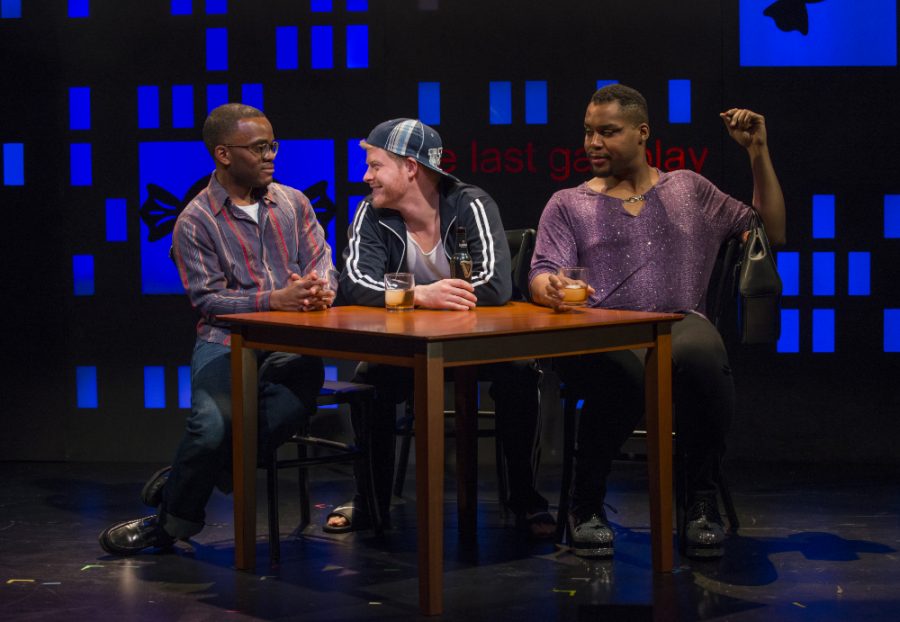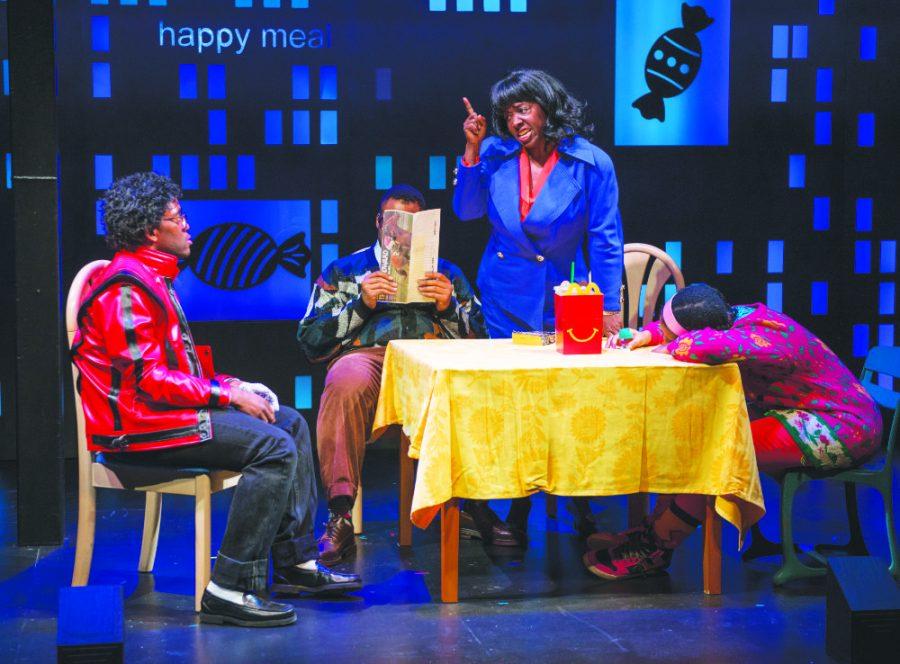Growing up Black and Gay: ‘Bootycandy’
Robert O’Hara’s “Bootycandy” is a raw and exposing play running until April 15 at the Windy City Playhouse. Tickets can be purchased online at www.windycityplayhouse.com or at the box office.
February 21, 2017
“It’s not meant to be easily swallowed,” says Krystel McNeil during one of the scenes of “Bootycandy,” surprising me with her bluntness. McNeil says that if a play doesn’t make the audience work to consume it, it’s not doing its job.
NAACP Best Director Award winner Robert O’Hara writes and directs “Bootycandy,” a semi-autobiographical comedy portraying the complexities of growing up black and gay. Premiered in 2014 at Playwrights Horizon in New York, O’Hara directs the Chicago premiere of “Bootycandy” at the Windy City Playhouse featuring an all-Chicago cast consisting of Travis Turner, Krystel McNeil, Debrah Neal, Robert Fenton and Osiris Khepera.
Turner plays Sutter, a character loosely based on O’Hara. He reveals the harsh reality of racism, love, sex and sexual identity while trying to find the meaning of them all. The play consists of individual scenes that help shape Sutter’s childhood environment, one filled with loneliness and lack of guidance. Each scene has its own title signifying its individuality, yet all scenes reveal different aspects of Sutter’s life that creates a sense of unity within the play.
Turner delivers a painfully wondrous act in “Happy Meal,” a scene about a mother’s misguided accusation of her son causing a man to follow him home from the library. While Sutter tries to explain the man’s stalking tendencies, Sutter’s mother keeps yelling “What did you do?” For Sutter’s mother, the logical explanation must be that Sutter provoked the man. She doesn’t stop to think about his emotional well-being or the actual events leading up to the stalking, which reveals the lack of empathy she has for her own son.
The frustration behind Turner’s every motion and word as he tries to defend himself until he’s shot down from his mother’s ignorance. “Happy Meal” portrays the ugly side of parenting: the times when listening serves a greater purpose than punishing. There’s a disconnect between parents and their kids that can only be solved with sharp communication; “Happy Meal” exposes the actuality of being misunderstood by one’s parents.
“Bootycandy” is full of controversial situations that are often marginalized. In “The Last Gay Play,” Turner, Fenton and Khepera tell the story of two gay men sodomizing a drunk, crude person who is desperate for human closeness, resulting in his suicide. This scene was haunting, for it uncovers the truth about playing with someone’s emotions without any concern for their mental health or the consequences. It’s sickening, full of awkward tension and desperation, definitely achieving a somber atmosphere filled with regret. The visual effect of Fenton begging for close body contact while only wearing a white towel–completely naked in all of his glory– was intense. While the three actors were brilliant, this scene was hard for me “to easily swallow.”
One aspect of the play that was confusing, but weirdly strong, was when all the actors sat down in a row to talk about their scenes. Right before the intermission, Fenton led the ensemble in a conference-like discussion where they each ended up revealing their views on blackness while still acting in scenes. When Fenton offered a synopsis to Turner’s scene that consisted of calling the main character “white,” Turner challenged Fenton; he stated that just because the actor was white does not mean the character was based on a white man. Turner’s commentary exposes the lack of representation of diversity in theatre, which is a sad reality in today’s media.
While “Bootycandy” contains nudity and content intended for a mature audience. It’s an unpredictable and raw play that exposes the cracks in our society. The production of “Bootycandy” will run until April 15.








